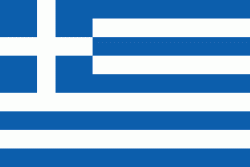Kos (Dimos Kos)
Kos or Cos (Κως ) is a Greek island, part of the Dodecanese island chain in the southeastern Aegean Sea. Kos is the third largest island of the Dodecanese by area, after Rhodes and Karpathos; it has a population of 36,986 (2021 census), making it the second most populous of the Dodecanese, after Rhodes. The island measures 42.1 x. Administratively, Kos constitutes a municipality within the Kos regional unit, which is part of the South Aegean region. The principal town of the island and seat of the municipality is Kos Town.
The name Kos (Κῶς, genitive Κῶ) is first attested in the Iliad, and has been in continuous use since. Other ancient names include Meropis, Cea, and Nymphaea.
In many Romance languages, Kos was formerly known as Stancho, Stanchio, or Stinco, and in Ottoman and modern Turkish it is known as İstanköy, all from the reinterpretation of the Greek expression εις την Κω 'to Kos'; cf. the similar Istanbul and Stimpoli, Crete. Under the rule of the Knights Hospitaller of Rhodes, it was known as Lango or Langò, presumably because of its length. In The Travels of Sir John Mandeville, the author misunderstands this and treats Lango and Kos as distinct islands.
In Italian, the island is known as Coo.
A person from Kos is called a "Koan" (or "Coan") in English. The word is also an adjective, as in "Koan goods".
The name Kos (Κῶς, genitive Κῶ) is first attested in the Iliad, and has been in continuous use since. Other ancient names include Meropis, Cea, and Nymphaea.
In many Romance languages, Kos was formerly known as Stancho, Stanchio, or Stinco, and in Ottoman and modern Turkish it is known as İstanköy, all from the reinterpretation of the Greek expression εις την Κω 'to Kos'; cf. the similar Istanbul and Stimpoli, Crete. Under the rule of the Knights Hospitaller of Rhodes, it was known as Lango or Langò, presumably because of its length. In The Travels of Sir John Mandeville, the author misunderstands this and treats Lango and Kos as distinct islands.
In Italian, the island is known as Coo.
A person from Kos is called a "Koan" (or "Coan") in English. The word is also an adjective, as in "Koan goods".
Map - Kos (Dimos Kos)
Map
Country - Greece
 |
 |
| Flag of Greece | |
Greece is considered the cradle of Western civilization, being the birthplace of democracy, Western philosophy, Western literature, historiography, political science, major scientific and mathematical principles, theatre and the Olympic Games. From the eighth century BC, the Greeks were organised into various independent city-states, known as poleis (singular polis), which spanned the Mediterranean and the Black Sea. Philip II of Macedon united most of present-day Greece in the fourth century BC, with his son Alexander the Great rapidly conquering much of the ancient world, from the eastern Mediterranean to the North Western parts of India. The subsequent Hellenistic period saw the height of Greek culture and influence in antiquity. Greece was annexed by Rome in the second century BC, becoming an integral part of the Roman Empire and its continuation, the Byzantine Empire, which was culturally and linguistically predominantly Greek.
Currency / Language
| ISO | Currency | Symbol | Significant figures |
|---|---|---|---|
| EUR | Euro | € | 2 |
| ISO | Language |
|---|---|
| EN | English language |
| FR | French language |
| EL | Greek language |















